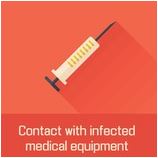|
|
Health Law Consulting Blog
Saturday, August 4, 2018
The NIST defines cloud computing as a model for enabling – - ubiquitous (present, appearing, or found everywhere, omnipresent, ever-present, everywhere, universal, pervasive, worldwide, global),
- convenient,
- on-demand network access
Read more . . .
Wednesday, July 4, 2018
Faulk & Associates, LLC takes a practical approach to indemnity in technology agreements and provides this non-binding general guidance commentary. The key to indemnity provisions, which can be written broadly or narrowly, is to remember that good drafting upfront is essential to avoiding downstream risk. There are so many factors that can impact the indemnity under commercial agreements, making it crucial for the parties involved with understanding such provisions to give them due care and consideration. In a nutshell, these are not provisions to be overlooked, undervalued or worse, ignored. Read more . . .
Sunday, June 17, 2018
It is common knowledge that a covered entity and business associate as defined by HIPAA must comply with HIPAA and HITECH Act requirements. Since the HITECH Act, requests are made of pharmaceutical drug makers (“Pharma Company”) to enter BAAs, particularly in connection with the company’s technology and technology-enabled initiatives. We caution against any Pharma Company jumping into a BAA with a technology vendor, if the Pharma Company or technology vendor each are not already a BAA or sub-BAA, without giving careful thought to whether this makes sense for either or both. Read more . . .
Monday, March 26, 2018
In this fast-paced, global contracting environment, traditional due diligence is a thing of the past. Therefore, we have found that ascertaining certain information upfront serves as a form of due diligence that cannot possibly be done in isolation. This allows us to know that the request relating to Regulated Products (as defined below) has been properly vetted (i.e. gone through a robust legal, regulatory, and compliance review as deemed appropriate) and all necessary approvals were obtained confirming the concept the contract relates to is not deemed to violate any applicable law, including the anti-kickback statute and false claims act.
Read more . . .
Saturday, February 10, 2018
It is common practice for billing companies to send the billing/coding work outside the U.S. This has received scrutiny, specifically as it relates to privacy concerns. While offshore billing is growing in popularity for medical office functions, this practice represents a unique and continuing set of problems for both physician practices and 3rd party billers. Read more . . .
Monday, May 18, 2015
In today’s global regulatory climate, transparency is not only expected, but required. Interactions among physicians, drug and device manufacturers beg for transparency, particularly when the public questions the judgment of physicians who, in large numbers, have financial relationships with drug and device manufacturers. For example, in 2009, it was reported that 84 percent of physicians had some form of financial interaction with drug and device manufacturers. Does the nature of these financial relationships impair physicians’ judgment? While we do not know the answer to this question, it is well-known that the interaction between doctors and manufacturers is important for research and development of life-saving drugs and devices, and in the context of consulting. However, conflicts of interest can arise where the lines blur between promotional activities and the conduct of research, and medical practice.
Read more . . .
Monday, April 6, 2015
9162.jpg) Medicare is a federal health insurance program available to U.S. citizens who are 65-years-old or older. It provides health insurance coverage to people with disabilities under the age of 65 and people with End-Stage-Renal Disease. Beneficiaries pay part of the costs through deductibles for hospital stays and are required to pay monthly premiums for health care services. Read more . . .
Monday, February 16, 2015
 Last year, the launch of the Affordable Care Act affected Americans nationwide. Now it’s making its way into the business world. Beginning in 2015, the “employer mandate” of President Obama’s Affordable Care Act (“ACA”) will take effect. The provision, titled 4980H, was supposed to start in 2014 but was postponed by the IRS for another year. Under the mandate, “large” companies will have to reevaluate the coverage they provide to their full-time employees. In just another year, the same provision will apply to companies deemed “mid-size.” Read more . . .
Tuesday, January 6, 2015
 Americans are not as free as you think when there’s a global health crisis at foot. With the rise of the Ebola epidemic in West Africa comes reasonable concern for the safety of the American people. Fear of the disease spreading through air travel and the number of healthcare workers offering aid to Ebola patients overseas have created questions about our safety at home. Politicians have responded by taking actions they believe will keep Americans safe. But there is always a cost to safety, and unfortunately that cost is our individual rights. Read more . . .
Monday, January 27, 2014
The calendar year 2014 Physician Fee Schedule (PFS) proposed rule with comment period was placed on display at the Federal Register on July 8, 2013. The final rule is on display at the Federal Register and will be published on December 10, 2013.
The 2014 physician payment rates increase payments for many medical specialties with some of the greatest increases going to providers of mental health services including psychiatry, clinical psychologists and clinical social workers. Read more . . .
Wednesday, January 22, 2014
I previously discussed the core components of the patient centered medical home delivery care model (PCMH). The post prompted numerous inquiries from health care professionals regarding what the financial benefits are in becoming recognized as a PCMH medical practice.
I researched the issue in more detail and found varying reports regarding reimbursement payment models by federal, state, and private payers that support PCMH recognized health care providers.
Read on to learn more about how proposed payment models may affect the financial aspects of a PCMH medical practice. Read more . . .
|
|
 |
|